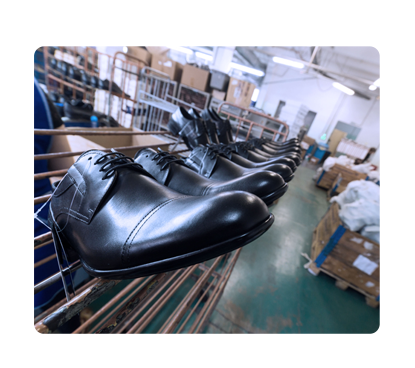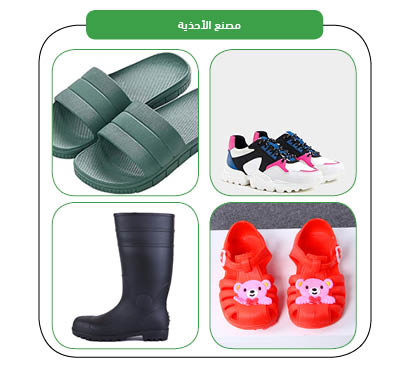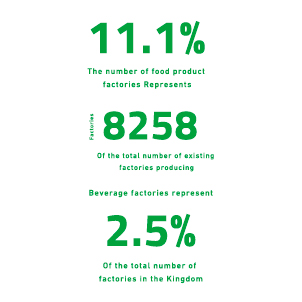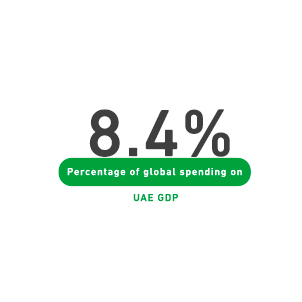Mashroo3k Consulting Company offers a feasibility study for a shoe factory project with the highest return on investment and the best payback period. This study is based on a series of in-depth studies of the size of the Yemeni market, an analysis of competitors’ strategies in the surrounding environment, and the provision of competitive pricing.

The project is a shoe factory, where the factory produces various plastic shoes such as (work shoes for workers – plastic shoes for workers – plastic shoes for clinics and hospitals for men and women – plastic shoes for children – bathroom shoes – shoes for school students for boys and girls), as the shoe factory targets many sectors including; (workers – students – workers in hospitals and health clinics – children), and the feasibility study of the shoe factory project conducted by Mashroo3k Company for Feasibility Studies and Business Plans confirms that the project is one of the commercial and investment opportunities with high profits and financial returns. At the beginning, Mashroo3k Company for Feasibility Studies and Business Plans analyzes and studies the basic idea of the project, its components and nature, analyzes competitors, market size and marketing intent, and after preparing the market studies and market size, it becomes clear that there is a great need for the factory’s products, which are: (Work shoes for workers – plastic shoes for workers – plastic shoes for clinics and hospitals for men and women – plastic shoes for children – bathroom shoes – shoes for boys’ school students – shoes for girls’ school students). The factory aims to produce shoes by exploiting available resources, employing workers (technical – administrative), improving their economic and social level, achieving a high quality level for the project’s products, maintaining a competitive price level that enables the project to obtain its target share, contributing to covering part of the increasing demand for shoes, and using the latest technologies in the field of shoe production and training workers on them. The importance of establishing a shoe factory is due to the increase in the target sectors represented by; (workers – students – workers in hospitals and health clinics – children).

Plastic Shoes for Workers<br>Work Shoes for Workers<br>Plastic Shoes for Clinics and Hospitals<br>Plastic Shoes for Children<br>Bathroom Shoes<br>Shoes for Boys’ School Students<br>Shoes for Girls’ School Students


Executive summary
Study project services/products
Market Size Analysis
Risk Assessment

The Industrial Sector in the Gulf Cooperation Council (GCC) Countries
The industrial sector serves as the cornerstone of global economic growth, with its indicators reflecting the progress and development of nations. The economic power of certain Western countries today is largely attributed to the strength of their industrial sectors. Given the vital role of this sector, “Mashroo3k” presents key insights into the industrial landscape of the GCC countries:
Number of operational factories: 8,258
Licensed workforce: 968,121 workers
Total capital investment: SAR 1,256,616 million
Largest industrial activities by number of factories:
Riyadh (3,332 factories)
Eastern Province (1,877 factories)
Makkah (1,741 factories)
Factory classification:
Small factories: 43.7% of total factories (3,671 factories), employing 111,354 workers
Medium factories: 46.6% of total factories (3,907 factories), employing 379,342 workers
Large factories: 9.7% of total factories (813 factories), employing 477,425 workers
Factories under construction: 1,801 factories, with 78,650 licensed workers and SAR 68,481 million in capital investment
Riyadh’s share of under-construction factories: 40.4% (728 factories)
Total factories: 6,481
Total workforce: 737,126 workers
Number of manufacturing establishments: 32,654
Total manufacturing sector output: AED 448,127 million
Leading industrial activity:
Coke and refined petroleum products with an output of AED 119,787 million
Industrial exports value: Exceeding AED 240 billion
Global competitiveness target: Aiming for 25th place in the Global Industrial Performance Index (previously ranked 38th)
Support for SMEs: Strategy to establish 13,500 small and medium enterprises (SMEs)
Total industrial establishments: 5,539
Total workforce: 160,654 workers
Total industrial output: KWD 35,929.7 million
Factories by workforce size:
1-10 workers: 4,526 establishments employing 24,048 workers, with an output of KWD 250.3 million
11-19 workers: 464 establishments employing 6,871 workers, with an output of KWD 113.1 million
20+ workers: 549 establishments employing 129,735 workers, with an output of KWD 35,566.3 million
Total industrial establishments: 3,467
Total workforce: 161,872 workers
SMEs’ share of total factories: 84%
Manufacturing sector’s GDP contribution: 9.2%
Factories by workforce size:
1-10 workers: 1,799 establishments, employing 8,305 workers
10+ workers: 1,668 establishments, employing 153,567 workers
Total manufacturing establishments: 61,217
Total workforce in the manufacturing sector: 237,000 workers
Manufacturing sector’s GDP contribution: 9.6%
Manufacturing exports’ share of total exports: 31.4%
Annual manufacturing sector growth rate: 6% over the past five years

Riyadh accounts for 40.4% of the total factories under construction (728 factories).
The UAE aims to rank 25th in the Global Industrial Competitiveness Index, having previously held 38th place.
The national strategy supports the establishment of 13,500 small and medium enterprises (SMEs).
The industrial sector contributes 8.4% to the country’s GDP.
The number of workers in these establishments has reached 129,735, with a total production value of KWD 35,566.26 million.
The manufacturing industry contributes 9.2% to the country’s GDP.
The manufacturing sector’s exports account for 31.4% of the country’s total exports.